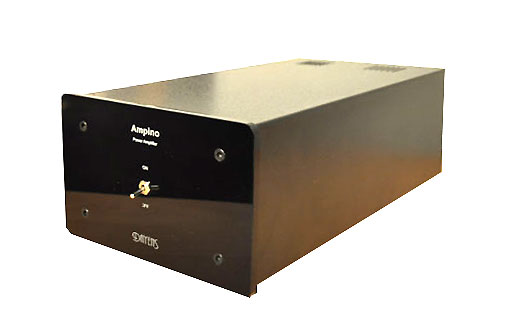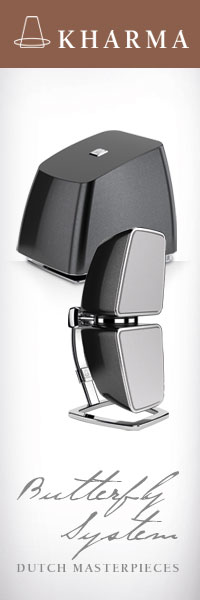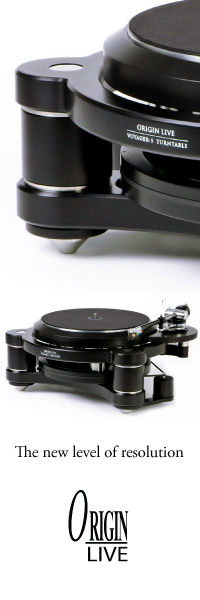The Dayens Ampino Stereo Power Amplifier
|
The Dayens Ampino Stereo Power Amplifier |
|
Beautifully Done! |
|
|
|
October, 2012 |
On the couch
Really, my current system’s “less-ness” represents the come-to-Jesus upshot of my own personal sonic and musical preferences over the years, culminating in the (relatively) recent revelation that what I was really after as an audiophile/music lover was a certain sound. Now to get there, some of you will need serious therapy; maybe a team of tweed wearing, pipe-smoking beard-strokers in Vienna. Others, well, you might do with some set amount of meditation and/or Tai Chi and a self-help book or two. Ultimately though, if you’ve got the requisite cojones for brutal honesty with your deepest audio-self, I think that’s what you’re really after too.
We are of course not speaking here of your penchant for some particularly glaring sonic coloration or lust for some unwieldy intentional divergence from the straight-line frequency response curve. At least I’m not. Rather, if we’re all honest with ourselves, we come to rest in the warm core of our own audiophile essence; namely, that we all have particular sonic ‘hot buttons’ which, when pressed to some only-known-to-you threshold degree by a given audio component, allow us to ignore the component’s other deviations from whatever the theoretical ‘ideal’ might be. What deviations you talkin’ bout David? Sounds perfect to me!
Only Harry Pearson may rest secure in the knowledge that his personal taste exactly coincides with the theoretical ‘ideal’—or The Absolute Sound. And ya know what? He’s god damned entitled! He’s Harry friggin’ Pearson by jiminy, and without him and other pioneers of his estimable ilk, we wouldn’t be having this damn discussion in the first place!! Now pay homage in your own special way.
Mr. Dobrin from Serbia
I am the product of the American educational system and what’s worse, a former English major with a concentration in Romantic period poetry, and therefore cannot locate Serbia on a map. Mr. Dobrin of Serbia though, has apparently had no difficulty finding the US audio community. Dayens products have reached the ‘right’ people among us—those who care about music above sonics, and those of us who understand that less is actually… less. It doesn’t need to be more, because it’s just fine being what it is.
Cutting directly to the chase, the shiny happy new 35 watt per side (into 8 Ohms) Dayens Ampino stereo power amplifier under review here exhibits less fine grain than I’m used to hearing. My Tekton M-Lores, in that they are a high-efficiency, relatively-single-driver loudspeaker, are excellent conduits for purity and via said conduits, it was very apparent that this newer stereo amplifier version of the Dayens Ampino integrated (i.e. sans volume contol), was a very ‘clean’ device. Indeed, Kathleen Battle’s silvery, pure soprano is a wonderful touchstone in this regard and I have scarcely heard a more grain free reproduction of her performance of ‘Laudate Dominum’ [Grace CD, Sony] than via the Tekton/Dayens combo. Often, atop the cadenzas here, the accompaniment pares down to sparseness, leaving that unbroken, polished thread of silver sound that is uniquely Battle’s hanging in the echoey stillness of that vast cathedral. On the right day— perhaps at the end of a ‘wrong’ one—alone—glass of single malt scotch in hand—this is why I’m an audiophile.
It isn’t so much that the recording sounds ‘real’ in that I have no idea what the original event sounded like—but a grainless, dynamic system like the Dayens/Tekton draws you in to its own reality and you suspend disbelief. Your shoulders relax. It doesn’t matter that your friends or associates never heard of Dayens or Tekton, or think you’re under-medicated because your interconnects are 600 dollars a meter—you just feel privileged to have been given the ability to appreciate moments like this during our short bodily time on Earth.
The slightly more powerful Emotiva mini-x a-100 integrated amplifier is a little feistier than the Dayens. There’s a bit more excitement in the sound and that sound is a touch more forward. Not too forward—just a bit more than the Dayens. The Emotiva amp has maybe a bit more bass too, but it’s just a bit rougher around the edges; there’s a little more grain- a little less refinement. The Dayens has a way with tone and texture that the Emotiva doesn’t quite ‘get.’ This is most apparent, of course, on recordings where tonal beauty and purity are intrinsic to the conveyance of the composer’s emotional message; recordings like Anne Sophie Mutter’s complete traversal of the Beethoven violin sonatas on DG, accompanied by Lambert Orkis.
Here the Dayens presents Mutter’s violin without the very fine grit even some superb larger, pricier and more complex amps can overlay. The Red wine 30.2, my dearly departed long-term reference, is capable of similar grainlessness, though it tends toward a bit more warmth globally (not necessarily a bad thing!) and is similarly powered. It’s also considerably more expensive (a bad thing).
Incidentally, and while we’re (I’m) on the subject, why have I been comparing the Dayens to the little 50 watt $219 Emotiva amp? Because the little Emotiva amp—which I bought as an intended stopgap between “reference” amps—is eminently worthy of comparison! This is NOT a $200 amp. It’s an amp that happens to be priced at $200. The difference? Musical enjoyment. You do not for a second have to pretend to like the Emotiva despite its cost; it is cost-no-object enjoyable– fast, fun, dynamic and tonally excellent, especially when you max out its volume pot, and let a good lossless dithered volume control handle the preamp duties, like that available via Audirvana Plus software.
Back to the subject of this review, the Dayens Ampino power amp in combination with the Burson HA-160D (or the superb new Soloist– review pending—plus Metrum Octave DAC), as controlled via Audirvana Plus software running in integer/direct mode with lossless volume control, was among the most musically satisfying systems I’ve ever heard.

Willie Nelson has certainly released a lot of CDs over the years, but I frequently come back to two—‘Crazy: The Demo Sessions’ [Sugarhill B000083MF7] and ‘Teatro’ [Island B00000AFB6]. Lemme just be big enough to say here and now that the latter was given to me by a beautiful and sweet old girlfriend from Texas during the course of our budding relationship, and I… never… returned… it. I know. I know. Sorry, Shannon. Sorry about the stuffed rabbit too. Ahem. Anyway…
Listening to the former album late-night at low volume, scotch in hand, was simply mesmerizing. Willie at the outset of his career, close-mic’d, alone, and, I might add, frequently forlorn. The voice is haunting in its presence and tonal purity. Yes the Tekton M-Lores are in their glory here—but the Dayens’ minimalism and grainless low watt purity are a major part of that glow.
Functionally there is little to say about the Dayens. It… functions. No ticks, pops, drama—just a tastefully subdued tiny light to let you know you may now play something. Neither particularly warm nor particularly cool sounding, it does run rather cool in operation. Like your iPhone, you may leave it on indefinitely. Initially, say for the first 15 or 20 hours of play, there is some top end glare; okay, brightness. Then that fades completely and you are left with purity. I suppose thrash metal albums over low efficiency speakers wouldn’t go over well with the Dayens, but I own neither. Mind you, I don’t doubt there are cogent arguments for ownership of one or the other; yet still, I will resolutely never own either. Don’t write in.
IcePower amps have more bass and a broader soundstage. The Dayens wins on essence—on body. Tube amps and the Red Wine are a bit warmer, but you have to like that. The Emotiva is a bit ‘faster’ and maybe a bit more forward– the Dayens, a bit more refined.
Distillation
While I myself could live very happily with the Dayens at the beating heart of my seestem, I don’t begrudge you spending more money. Certain products have a certain ‘feel’ to them you may prefer—the sort of intangible that separates say, that ‘great’ gal (see above) you dated for a year or so from the one you knew six months in you might well end up picking out shower curtains and punch bowls with. You might also legitimately need more power, or prefer a ‘tubier’ sound, or a more incisive one. You might even—perish the thought—want a ‘home theater’ amp replete with light up façade that tells you the degree of bass ‘linearization’ and the simultaneous time in Austro-Hungary and Staad. The Dayens ain’t it.
But… if you have relatively efficient speakers in a small to medium-ish room and value in particular musical qualities such as tonal veracity, grainlessness and sheer involvement, you really don’t need to open your wallet much wider. It might bear mentioning I found the somewhat more venerable and similarly powered and priced stereo integrated version of the Ampino a touch warmer and maybe marginally less detailed as compared with the pure stereo amp version sans Alps pot with Audirvana Plus losslessly handling the preamplification matters, though the former amp may be more versatile depending on your needs (i.e. offers analogue volume adjustment for stand alone listening to an analogue source or for fine tuning and setting maximum output levels when using with a ‘software’ source etc.).
[Cue deep gravelly movie announcer voice…]
In a world where…
software has begun replacing preamps and music servers/PCs are fast the front-ends of choice, you may well find coming home to a system that looks like Mac or PC into head amp/DAC combo into Dayens Ampino amp into speakers to be where it’s at– both in terms of less (hassle, money, space occupation), and more (involvement, enjoyment, reliability, versatility).
The Dayens Ampino stereo power amplifier is what it is beautifully and in every regard; a compact, superbly built, musically even-handed, tonally balanced, engaging, reliable audio device at an extremely reasonable price. I’m hanging on to mine.
Beautifully done, Mr. Dobrin of Serbia; beautifully done, wherever you are.
PS: I’ll Google it— I swear.
I bid you peace


David Abramson
Ampino Stereo Power Amplifier
Specifications
Power (Watt): 2×35 / 8 Ohm
2×50 / 4 Ohm
Inputs (RCA): 1
Frequency response (Hz): 1Hz – 200kHz
SNR (dB): >100
Dimensions (mm): 150x315x90
Weight (kg): 4.0 (8 lbs)
Product highlights:
• 150VA toroidal transformer
• Mundorf MLytic® AG Audio Grade Power capacitors
• Mundorf MCap® ZN tin foil input capacitors
• one pair of Japanese (bipolar) output transistors per channel
Price: $795.00
Dayens d.o.o.
Centar 1, 15000 Šabac
Serbia
Tel: +381 15 345 369
E-mail: office@dayens.rs
US Distributor
Michael Gill Audio
680 E Colorado Blvd. Pasadena, CA 91101
Tel: 404 840 6052
Website: www.dayens.rs/eng_ampino_amps.html
Email: mlgill2002@yahoo.com
Stereo Times Masthead
Publisher/Founder
Clement Perry
Editor
Dave Thomas
Senior Editors
Frank Alles, Mike Girardi, Russell Lichter, Terry London, Moreno Mitchell, Paul Szabady, Bill Wells, Mike Wright, and Stephen Yan,
Current Contributors
David Abramson, Tim Barrall, Dave Allison, Ron Cook, Lewis Dardick, John Hoffman, Dan Secula, Don Shaulis, Greg Simmons, Eric Teh, Greg Voth, Richard Willie, Ed Van Winkle, Rob Dockery, Richard Doron, and Daveed Turek
Site Management Clement Perry
Ad Designer: Martin Perry






Be the first to comment on: The Dayens Ampino Stereo Power Amplifier